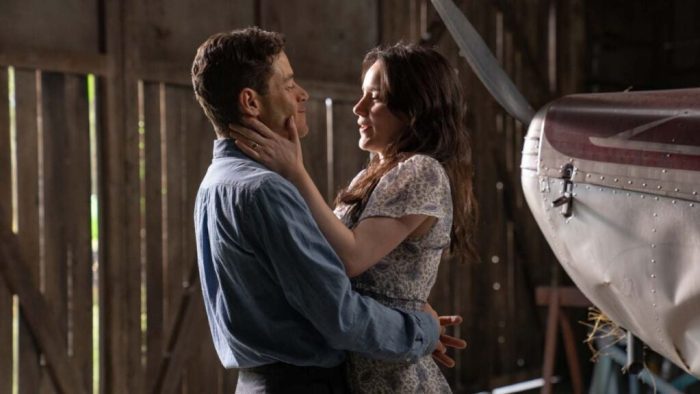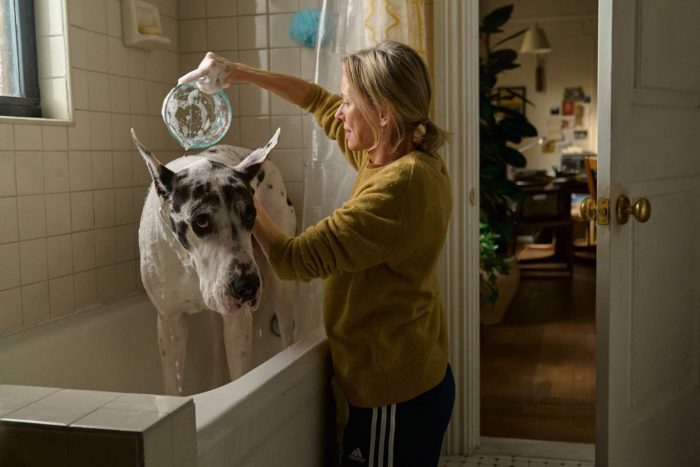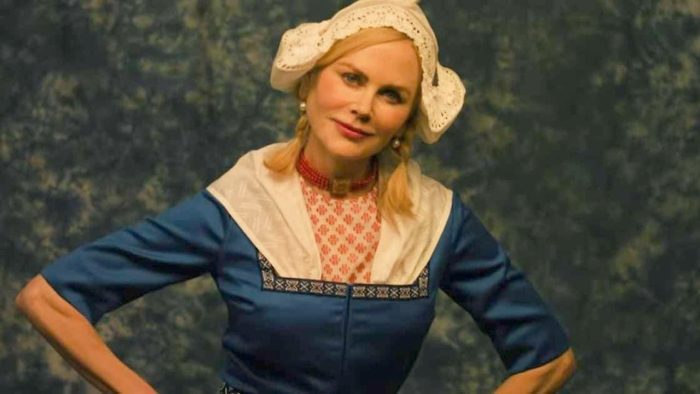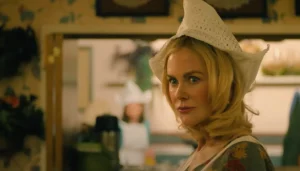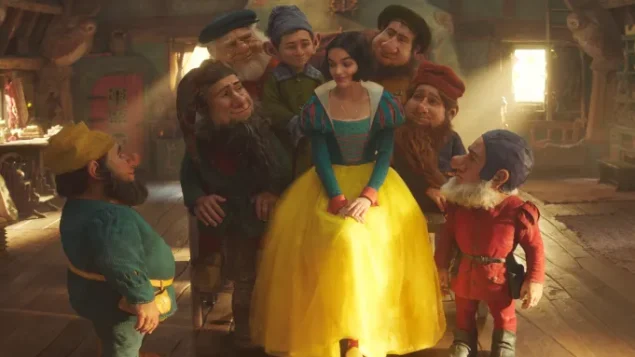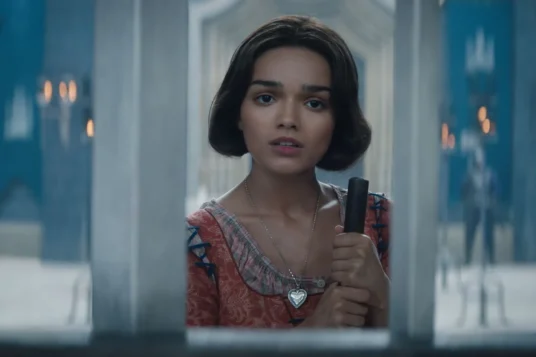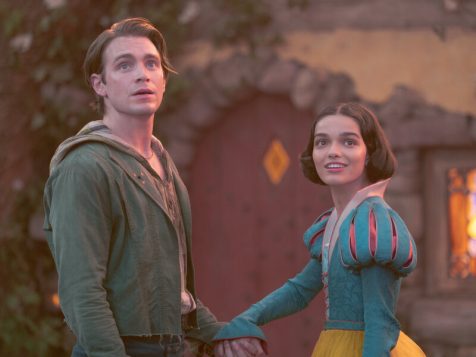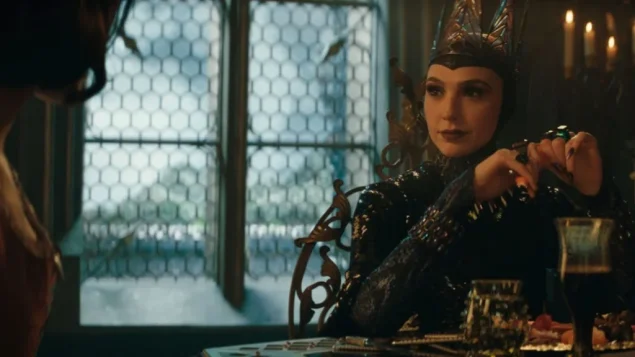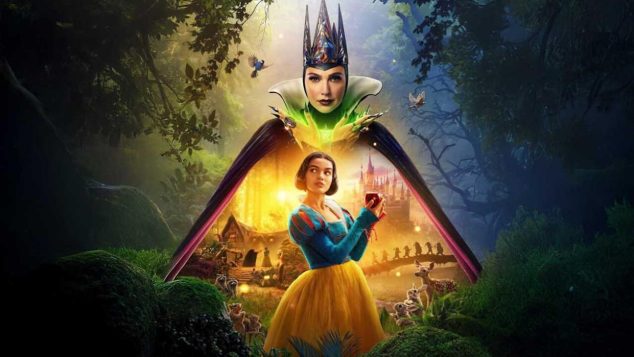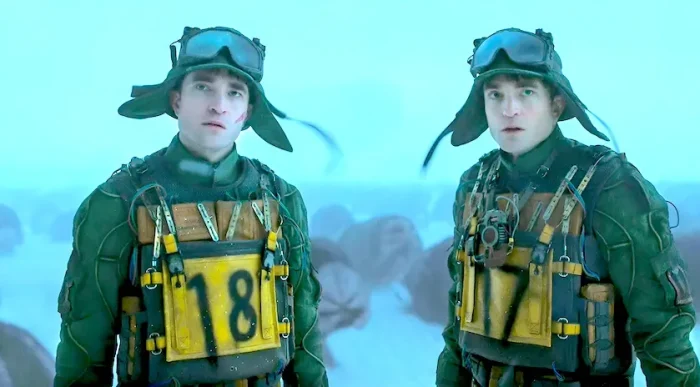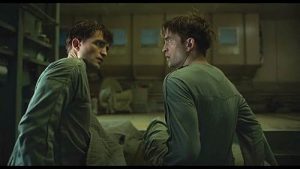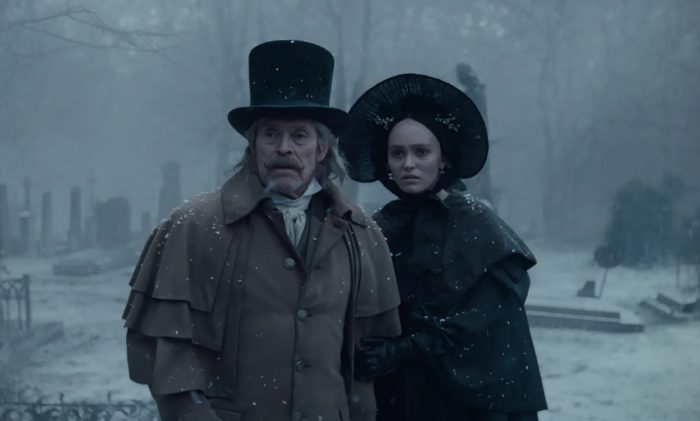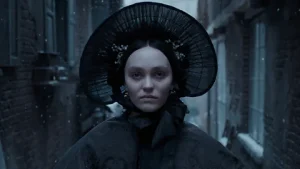Reviewed by Jeffrey Sanzel
The Karate Kid was the sleeper hit of 1984, grossing $100 million in the United States and Canada. The film received mostly good reviews, was deemed a “feel-good” movie and made the film’s star, twenty-two-year-old Ralph Macchio, into an international teen idol.

The Karate Kid spawned multiple sequels: The Karate Kid Part II (1986), The Karate Kid Part III (1989), The New Karate Kid (1994), and The Karate Kid (2010), a remake of the original. An animated series, action figures, video games, comic books, a board game, and even an unproduced Broadway musical (in the works in 2020) are just part of the Karate Kid’s descendants. The most interesting addition is Cobra Kai (2018-2025), a streaming series of sixty-five episodes that included original stars Macchio and William Zabka. The exceptional show picked up thirty-four years after the first film. Cobra Kai was a worthy successor and addition to the franchise legacy.
Unfortunately, Karate Kid: Legends, the sixth big-screen entry, is, at best, on the level of direct-to-video. The basic, well-worn plot concerns Li Fong (Ben Wang) moving from Beijing to the United States when his mother (Ming-Na Wen), a doctor, lands a position in a New York City hospital. Dr. Fong does not approve of martial arts due to the death of her older son, who was stabbed to death by thugs led by his defeated rival. Li has studied kung fu with Mr. Han (Jackie Chan) and now must abandon his training in the wuguan (dojo).
On his first day in the City, Li “meets cute” Mia Lipani (Sadie Stanley), daughter of Victory Pizza owner Victor (Joshua Jackson), who is in debt to loan sharks. Quickly, Li runs afoul of Conor Day (Aramis Knight), a karate champion who also happens to be Sadie’s ex. What follows is a simplistic yet somehow convoluted plot whereby Mr. Han arrives to prepare Li for a major tournament with a $50,000 prize. Mr. Han also recruits California-based Daniel LaRusso (Macchio) to co-train Li in a blend of kung fu and karate. The connection between kung fu and karate is part of a refrain of “two branches/one tree” from the prologue—a clip with Macchio and his teacher, Mr. Miyagi (Pat Morita), snagged from The Karate Kid II.
Director Jonathan Entwistle does little with Rob Lieber’s by-the-numbers screenplay. Events are presented, but with little conflict, as the film meanders toward its predictable conclusion. The film relies on sitcom jokes and obvious montages, saccharine encounters, and often trite, strained dialogue. Peripheral elements of Chinese culture are given short shrift. Themes of guilt and responsibility barely register and then are quickly dismissed.
The most delightful moment is the brief tag in the final minutes—a tease of what the entire outing could have been. Legacy only manages to achieve a level of “fine” because of the assembled actors. The cast is pleasant, and the performances are uniformly more than acceptable. Wang channels a Michael J. Fox vibe, making him charismatic and easy to root for. His chemistry with the likable Stanley is believable. Jackson plays her father like a low-rent George Clooney, but not without a certain appeal.
Wen tries to find dimension in the grieving mother but is given few colors to play with and saddled with pedestrian lines: “You practice violence; you get violence in return.” The screenplay gives Knight’s sadistic bad boy zero background and no definition, flattening any possible wrinkle to the story: He is a stock psychopath, set up to be knocked over like a villainous bowling pin. Wyatt Oleff’s geeky tutor, Alan, seems like an afterthought.
Macchio, as always, owns Daniel and tries to bring both depth and lightness to the flabby proceedings. Chan is absolutely charming as the kung fu school’s shifu (master), and he and Macchio have an easy give-and-take that is the film’s highlight. Chan’s comic timing and smooth delivery enhance the underwhelming film.
It would be unfair to say the franchise is tired. Cobra Kai reinvented The Karate Kid surprisingly and engagingly, elevating and even surpassing the original films in many ways. Sadly, the Legends experience is cotton candy—but not in the festive carnival of memory and nostalgia. Instead, Karate Kid: Legends is muted and overly sweet, lacking substance and, ultimately, unmemorable.
Rated PG-13, the film is now playing in local theaters.




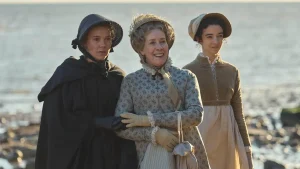

 Tickell (along with Rebecca Harrell Tickell) produced and directed the documentary Kiss the Ground (2020), which explored the issues raised in the book. The film shares interviews with farmers, scientists, and environmentalists. The focus is the power of healthy soil and its healing powers for humanity and the earth as a whole. Narrated by Woody Harrelson, the film features the well-known {model/ U.N. Good Will Ambassador Gisele Bünchden, NFL quarterback Tom Brady, etc.) along with authors and environmentalists. Kiss the Ground was lauded for its good intentions but received criticism for an often simplistic approach to the solution, especially concerning climate change.
Tickell (along with Rebecca Harrell Tickell) produced and directed the documentary Kiss the Ground (2020), which explored the issues raised in the book. The film shares interviews with farmers, scientists, and environmentalists. The focus is the power of healthy soil and its healing powers for humanity and the earth as a whole. Narrated by Woody Harrelson, the film features the well-known {model/ U.N. Good Will Ambassador Gisele Bünchden, NFL quarterback Tom Brady, etc.) along with authors and environmentalists. Kiss the Ground was lauded for its good intentions but received criticism for an often simplistic approach to the solution, especially concerning climate change.